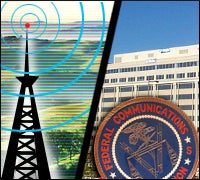 |
The Federal Communications Commission opened an inquiry into the wireless industry today, planning to probe the state of competition, innovation and investment in a sector of the telecom market that has been facing increasing government scrutiny.
By a unanimous vote, the five-person commission moved to issue two notices of inquiry regarding the industry, but the commissioners made it plain that they differ on how deeply the government should involve itself.
Democrat Michael Copps, for instance, described the wireless sector “a market that is less than maximally competitive.” Republican Robert McDowell countered with statistics that often headline the talking points of industry advocates, noting that 94 percent of Americans have their choice of at least four wireless providers, and urged the agency to “proceed with care” as it considers wireless regulation.
The inquiries will likely elicit responses touching on a spate of issues that have been commanding the attention of lawmakers and advocacy groups in recent months, ranging from open network access to the cost of sending text messages.
The FCC’s inquiry came as welcome news to critics of the wireless industry such as Herb Kohl, the Wisconsin Democrat who chairs the Senate antitrust subcommittee. Kohl has been leading the charge against carriers’ rate increases for texting, holding a hearing on the matter in June.
“Given some of the concerns that were raised at our hearing earlier this year, I’m pleased that the FCC will be taking a close look at whether there are adequate competition and consumer protections in place in the wireless market,” he said today in a statement.
Spectrum policy figures to be a central feature of the commission’s inquiry. Current policies that limit carriers’ access to wireless spectrum pose an “ongoing challenge and handicap on wireless innovation,” Commissioner Mignon Clyburn said at today’s meeting.
The commissioners noted that the ascendancy of mobile devices as a gateway to the Web has given a new urgency to spectrum reform and other issues surrounding the wireless market.
“With the advent of remarkable new mobile devices like the iPhone, the Pre, Blackberry we are at a pivotal moment in this industry,” FCC Chairman Julius Genachowski said.
The rise of the smartphone, and the accompanying developer platforms, has sparked a series of debates over the veto power that carriers and device makers have used to block certain applications.
On Friday, the FCC received responses from Apple, AT&T and Google to an inquiry involving the rejection of Google’s Voice application for the iPhone. VoIP provider Skype has a petition pending with the FCC asking it to impose the same open access requirements that govern the wireline industry to the mobile sector.
The commission is also looking for feedback on how wireless technologies are put to use to address challenges in areas such as energy, health care and education.
The notices of inquiry are designed to serve as a “base of knowledge” to inform the regulatory policies the FCC considers in the future.


